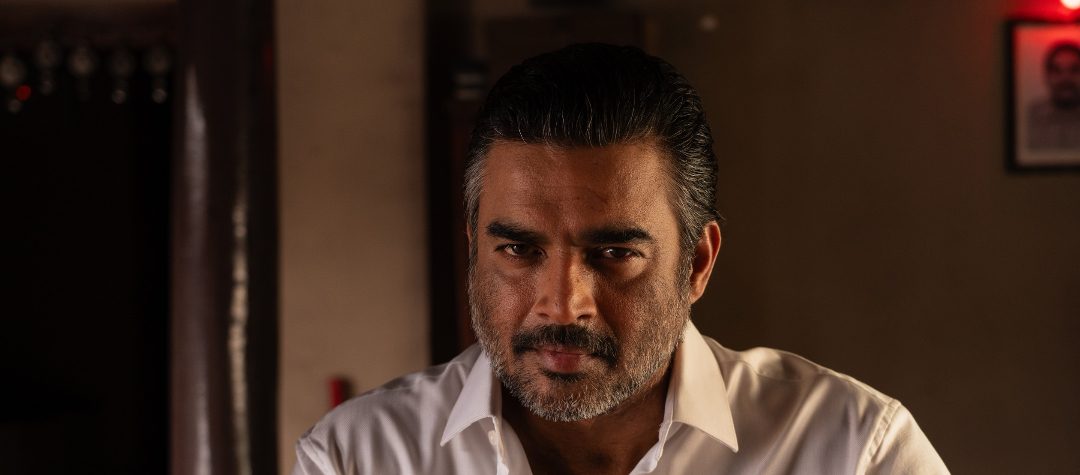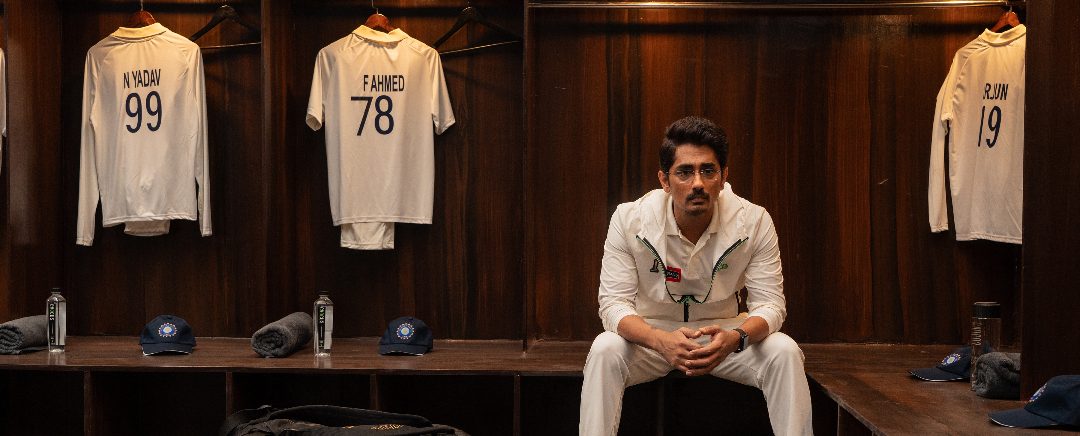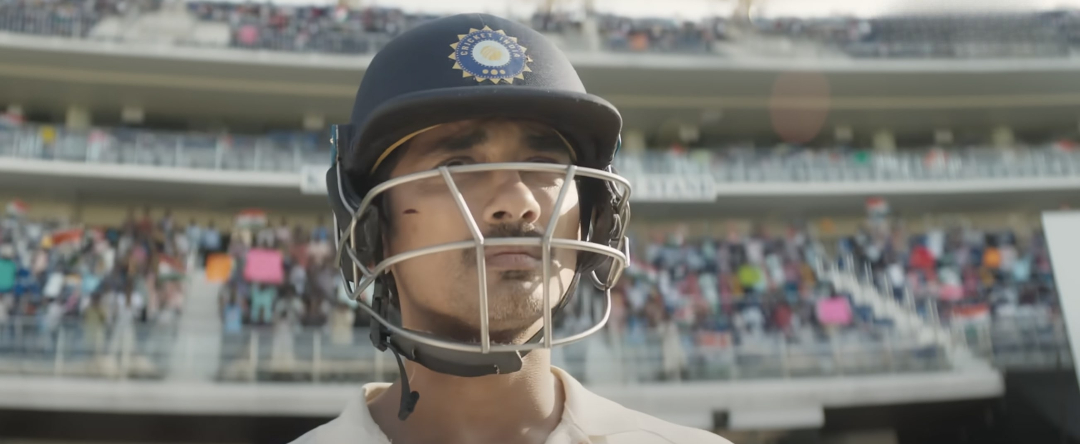Directed by S. Sashikanth, Netflix’s Tamil-language film ‘Test’ delivers a gripping and emotionally charged climax. In its final moments, Arjun Venkatraman makes the ultimate sacrifice, choosing his country’s honor over his personal turmoil, refusing to succumb to the demands of the match-fixing syndicate. Meanwhile, Saravanan faces a cruel betrayal at the hands match-fixing syndicate, leading to a violent and heartbreaking confrontation with his loved one. Amidst the chaos, Adi finally finds his long-awaited freedom. The film’s conclusion is anything but simple—it’s intense, thought-provoking, and deeply cathartic, leaving the audience with lingering questions while delivering a thematically resonant and satisfying payoff. SPOILERS AHEAD.
Test Plot Synopsis
In ‘Test,’ we follow Arjun Venkatraman, a once-great cricketer who is now struggling to regain his form. Once celebrated, he is now ridiculed by the media, dismissed by the public, sidelined by the selection committee, and even doubted by his own team captain. With his career hanging by a thread, Arjun is unexpectedly selected to play the final Test match of the high-stakes Freedom Series against Pakistan, which is currently tied at 2-2. The nation awaits a hero, but Arjun is battling demons of his own.

Simultaneously, we meet Saravanan, a brilliant but desperate scientist working on an ambitious hydro-fuel project that could revolutionize the energy industry. His dreams, however, come crashing down when the approval for his project is blocked by a corrupt official demanding a ₹5 crore bribe. Drowning in debt, Saravanan also owes ₹50 lakh to ruthless moneylenders and ₹5 lakh to an IVF clinic for his wife Kumudha’s fertility treatment. With no way out, his frustration spirals into madness. In a desperate act, Saravanan kidnaps Arjun’s young son, Adi, who is a student of Kumudha. Through Adi, Saravanan blackmails Arjun into fixing the final match, forcing him to play under his instructions. The moneylenders, who are linked to a dangerous match-fixing syndicate, become unwitting enablers of his plan.
As the match unfolds, Arjun is torn between saving his son and upholding his integrity. Against all odds, he defies Saravanan’s demands, putting his country before his personal loss. In a breathtaking climax, he leads India to victory, reclaiming his lost glory in a cathartic and triumphant moment. Meanwhile, as the police and the syndicate close in on Saravanan, he prepares for the unthinkable—to silence Adi forever. But in a shocking twist, Kumudha, realizing the monster her husband has become, intervenes at the last moment, saving Adi and bringing the harrowing ordeal to an end.
Test Ending Explained: Does Saravanan Die? Why Does Kumudha Hit Him?
The climactic moments of ‘Test’ leave the audience with an unsettling ambiguity regarding Saravanan’s fate. In a shocking turn of events, Kumudha, his wife, strikes him violently on the head with a bat, causing his neck to twist unnaturally as he collapses to the ground. A pool of blood forms beneath him, signifying the severity of the blow. The immediate aftermath sees the arrival of the police, who place Saravanan in an ambulance. However, the film provides no clear confirmation of his survival.

As the narrative unfolds, we learn that the hydro fuel project, for which Saravanan went to extreme and unethical lengths, has been approved. A news broadcast announces that the Government of Tamil Nadu has sanctioned the Hydro Fuel initiative, describing Saravanan as the “visionary scientist” behind it. The broadcast continues, but the film abruptly cuts away, leaving his fate deliberately open-ended. However, several visual cues suggest that Saravanan is, in all likelihood, dead. The unnatural twist of his neck, coupled with the significant blood loss, strongly implies fatal injuries.
Additionally, the news report only displays his photograph—often a posthumous tribute rather than a celebration of a living figure. Even in the unlikely scenario that he survives, his future remains grim. The police are now fully aware of his crimes, meaning he would face immediate arrest. If he were to recover, he would likely lose his scientific credentials, be sentenced to prison, and emerge as a disgraced figure. Moreover, the match-fixing syndicate, led by Kutty, would have every reason to eliminate him for breaking the unspoken code by harming the family of a cricketer. Whether dead or alive, Saravanan’s journey ends in inevitable ruin.
Kumudha’s decision to attack her husband is the culmination of an emotional and moral reckoning. Though she was complicit in the kidnapping of Adi, her role was fueled more by loyalty to Saravanan than by any true malice. However, as the ordeal unfolds, she witnesses the monstrous transformation of the man she once loved. Initially, Saravanan assures her that Adi will be safely returned home after the fifth day of the match. But as his obsession with his dream project escalates, his greed overpowers any remaining sense of ethics or humanity. The very dream he had once cherished now corrodes not only his morality but also his relationship with his wife. Kumudha, despite her initial complicity, remains a fundamentally kind person. Adi, after all, is not just a pawn in this twisted game—he is also her student.
The breaking point comes when Saravanan prioritizes his scheme over their personal life, sending Kumudha alone to the IVF center while he continues orchestrating the match-fixing. This neglect and growing disregard push her to the edge. When she returns home, she likely witnesses Saravanan on the verge of physically harming Arjun, further cementing her decision. At that moment, she does not hesitate. She acts on impulse, fueled by rage, disillusionment, and a desperate need to put an end to the madness. In a single, decisive moment, she swings the bat with all her strength—severing not just Saravanan’s grip on power but the toxic dream that consumed him. In the film’s final frame, the bat and the bloodstain remain in view, serving as a haunting testament to Saravanan’s downfall. His relentless pursuit of success led him down a dark path, and in the end, it was not fate or law enforcement that stopped him—it was the woman who once stood by his side, now forced to become his reckoning.
Why Does Saravanan Kidnap Adi?
One of the most pivotal turning points in ‘Test’ is Saravanan’s decision to kidnap Adi, the young son of Arjun. Up until this moment, Saravanan is portrayed as an ambitious yet seemingly moral individual—someone who has become increasingly desperate to see his hydro fuel project materialize but remains a loving husband and a loyal friend. However, as the odds stack overwhelmingly against him, his moral compass shatters under pressure, pushing him into an irreversible descent into madness. The tipping point comes when the government secretary, who was supposed to approve his project for a bribe of ₹50 lakh, suddenly raises the demand to ₹5 crore—an amount far beyond his reach. Simultaneously, his wife’s IVF procedure requires another ₹5 lakh, adding to his financial desperation. To make matters worse, the moneylenders he is indebted to abduct him, demanding immediate repayment and pressuring Kumudha to arrange the money. These cascading crises break Saravanan’s restraint, turning his desperation into dangerous recklessness.

At the moneylender’s hideout, Saravanan accidentally overhears a conversation about Dharmesh—the head of a powerful betting syndicate—trying to manipulate Arjun into match-fixing with a promised payout of ₹100 crore. At that moment, something within Saravanan snaps. With no rational way out of his predicament, he makes an impulsive and horrifying choice—kidnapping Adi, the very child his wife, Kumudha, tutors. To prevent Kumudha from interfering, he locks her in a room before executing his plan. Posing as an anonymous caller, Saravanan contacts Arjun and delivers an ultimatum: follow his instructions on the field or risk losing his son. Overwhelmed by fear for Adi’s safety, Arjun has no choice but to comply. Meanwhile, Kumudha, after initially resisting Saravanan’s actions, finds herself drawn into his scheme. Her desperation to become a mother—fueled by years of societal judgment and personal longing—overrides her ethical concerns. Saravanan exploits this vulnerability, making her an unwilling accomplice in his twisted game.
As the match unfolds, Saravanan forces Arjun to deliberately sabotage his team’s chances, ensuring their defeat. In the pursuit of his dream, Saravanan discards every last remnant of humanity—he turns against his closest friend, Bharani, mistreats his wife, and justifies every crime as a necessary step toward his greater goal. His disdain for cricketers and public figures only fuels his arrogance; in an earlier conversation with Arjun, he belittles him for being out of form, presenting himself as intellectually superior. This underlying resentment ensures that Saravanan never truly regrets his actions.
With Arjun visibly complying, Saravanan calls Dharmesh, offering a deal—Arjun will rig the match, but the syndicate must fulfill his demands. Initially hesitant, the moneylenders and match-fixing syndicate eventually agree, clearing his ₹50 lakh debt, providing ₹5 lahks for Kumudha’s IVF, and handing over ₹5 crores to the government secretary to push his hydro fuel project into the limelight. However, his meticulously calculated plan unravels when Kutty, a ruthless figure within the betting syndicate, murders his boss, Dharmesh.
Upon discovering Saravanan’s involvement in kidnapping Adi to coerce Arjun, Kutty refuses to honor any part of the deal. Worse, he turns against Saravanan, denying him the press coverage he so desperately sought and threatening to kill him. At this point, Saravanan is left with nothing. His dream, which once burned so brightly, collapses into ashes around him. What started as a desperate attempt to secure his future spirals into chaos, leaving him a man hunted from all sides—with no redemption in sight.
Why Does Arjun Defy Saravanan’s Instructions?
For most of ‘Test,’ Arjun is held hostage—not physically, but emotionally—by Saravanan, who has kidnapped his son, Adi. Desperate to ensure his child’s safety, Arjun complies with every humiliating and career-damaging demand Saravanan makes. He deliberately throws away his wicket in the first innings of the third Test match in the India-Pakistan Freedom Series, misses an easy catch, orchestrates his captain’s run-out in the second innings, and even takes a painful blow to the head to retire hurt. Each action chips away at his integrity as a cricketer, but he prioritizes his son’s life over everything else, even if it means tarnishing his own legacy and letting down his country.

However, as the match reaches its climax, something shifts within Arjun. Saravanan’s final instruction is clear—India must lose. The entire world, including his teammates and captains, expects Arjun to stay off the field, ensuring defeat. But this time, Arjun makes a different choice. In a moment of deep contemplation, he recalls his own words from an earlier scene: “Should I choose the son that I brought to life? Or cricket, which is my life?”
This internal conflict reaches its breaking point when India loses its ninth wicket. At this juncture, Arjun realizes that if he refuses to bat, India will lose the series, and his career will end in disgrace. This is his last match, his final moment on the pitch—the culmination of everything he has worked for. Despite knowing the personal risks, Arjun steps onto the field, determined to reclaim his integrity. With just four runs needed for victory, he takes a bold stance at the crease.
In a moment of poetic irony, Arjun executes a reverse sweep—an audacious and unconventional stroke—to hit the winning boundary. This choice is deeply symbolic. Earlier in the film, his son Adi had played the same shot and got out, prompting Arjun to scold him, calling it a foolish stroke. Now, as he plays it himself, the moment becomes a full-circle visual callback—one that carries immense emotional weight. As the ball crosses the boundary, sealing India’s victory, Arjun looks up and whispers an apology to Adi before breaking down in the middle of the field. It is a moment of triumph but also one of immense sorrow. He has reclaimed his honor as a cricketer, but at what cost? Arjun’s decision is not just about defying Saravanan; it is about choosing his own identity over fear. It is about proving, even in the face of impossible circumstances, that cricket—the game that shaped his life—deserves to be played with truth and passion.
What Happens to Arjun at the End? Will He Retire?
After executing the reverse sweep that seals India’s victory, Arjun stands in the middle of the pitch, emotionally overwhelmed. He has defied Saravanan, saved his son, and restored his dignity as a cricketer. Yet, even as the crowd erupts in celebration, his fate remains uncertain. Throughout the film, Arjun is depicted as a once-legendary player whose prime has long faded. Once hailed as a stalwart of Indian cricket, he has not scored a century in over two years, and both the selection committee and his captain have been pushing him toward retirement.

The Freedom Series was widely assumed to be his swan song, a sentiment reinforced in an earlier scene where Arjun acknowledges the brilliance of the younger players. He admires their skill and determination, recognizing that a new era of Indian cricket is dawning—one that no longer needs him. Now that the match-fixing nightmare is over and his son is safe, there is little reason for Arjun to reconsider his retirement. The burden that weighed on him throughout the series—the unbearable moral conflict of choosing between his son and his sport—has been lifted. He can finally walk away on his own terms, knowing he gave everything to the game that was his life.
Read More: Is Netflix’s Test Based on a True Story?


